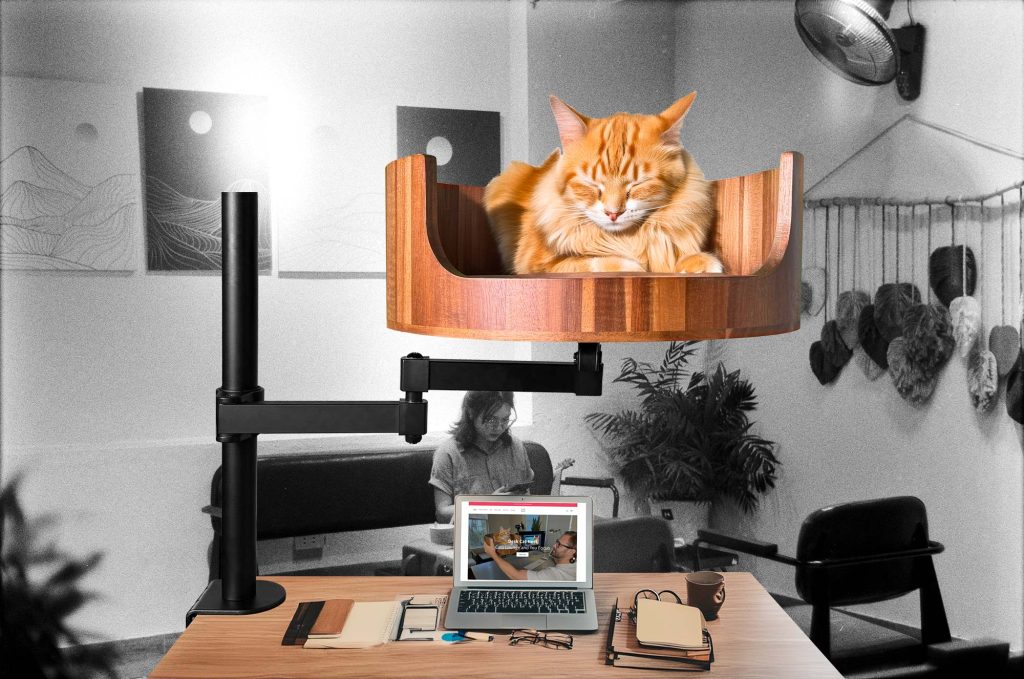If you’re a cat owner, you’ve likely heard of catnip and its magical effects on felines. But did you know that cats can actually eat catnip? In this article, we will explore the benefits and fun that catnip can provide for your beloved furry companions, shedding light on this often misunderstood herb.
Catnip, scientifically known as Nepeta cataria, is a perennial herb that belongs to the mint family. While most commonly used to induce playful behavior in cats when sniffed, catnip can also be ingested by cats, leading to a whole new world of possibilities. From aiding in digestion and relieving stress to promoting relaxation and reducing anxiety, catnip offers a range of benefits for your cat’s overall well-being. Additionally, consuming catnip can enhance your cat’s sensory experience, making playtime even more enjoyable. Whether you’re looking to give your cat a treat or simply spice up their day-to-day routine, incorporating catnip into their diet can be a fun and rewarding experience for both you and your feline friend.
1. Catnip is a safe and non-toxic herb that can provide various benefits for cats, such as stress relief and enhanced playfulness.
2. Not all cats are affected by catnip, as sensitivity to the herb is genetic and typically seen in around 50-70% of cats.
3. Catnip can be used to encourage exercise and mental stimulation in cats, making it a valuable tool for indoor felines.
4. Cats can enjoy catnip in various forms, including fresh, dried, or in toys, which can help keep them entertained and engaged.
5. While catnip is generally safe for cats, it’s essential to monitor their reaction and consumption to prevent overindulgence.
Catnip: What is it and How Does it Affect Cats?
Catnip, also known as Nepeta cataria, is a herb that belongs to the mint family. It contains a compound called nepetalactone, which is responsible for the hallucinogenic effects seen in cats. When cats are exposed to catnip, they may exhibit behaviors such as rolling around, rubbing against the plant, or becoming more playful and energetic. Not all cats are affected by catnip; around 50-70% of cats are sensitive to its effects, with kittens and senior cats being less likely to respond. Overall, catnip is considered safe for cats to consume in small amounts and can provide mental and physical stimulation.
Health Benefits of Catnip for Cats
Catnip can have positive effects on your cat’s health in addition to providing entertainment. Some potential benefits of catnip include stress relief, reduction of anxiety, and improvement of overall mood. By stimulating the release of feel-good hormones, catnip can help to alleviate symptoms of stress and anxiety in cats, making it a useful tool for calming nervous or anxious felines. Additionally, catnip can be used to encourage play and exercise, promoting physical activity and preventing obesity in cats.
Using Catnip Toys and Treats for Enrichment
One popular way of giving catnip to cats is through the use of toys and treats infused with the herb. Catnip toys come in various forms, such as stuffed animals, mice, or balls, and can be a great source of entertainment for your cat. Treats containing catnip are also available and can be used as a reward or training aid for your pet. These products can help to keep your cat engaged and mentally stimulated, providing opportunities for play and exercise throughout the day. When introducing catnip toys or treats to your cat, be sure to monitor their behavior and response to ensure they are not overindulging.
Conclusion
Catnip can be a valuable addition to your cat’s life, offering a range of benefits from mental stimulation to stress relief. By incorporating catnip into your cat’s routine through toys and treats, you can provide them with hours of entertainment and enrichment. However, it’s important to use catnip in moderation and to watch for any adverse reactions in your cat. Overall, catnip can be a fun and beneficial tool for enhancing your feline companion’s well-being.
## Desk Cat Nest FAQ
### Can my cat eat catnip?
Yes, cats can eat catnip safely. In fact, many cats enjoy consuming small amounts of catnip either fresh or dried.
### How much catnip is safe for my cat to consume?
It is recommended that you give your cat only a small amount of catnip, as too much can cause stomach upset or other issues. A pinch or small sprinkle of catnip is usually sufficient for most cats.
### Will my cat become addicted to catnip if they eat it?
No, cats cannot become addicted to catnip. While they may enjoy the effects of catnip and seek it out, they will not experience withdrawal symptoms or cravings if they are not given catnip.
### Are there any potential risks or side effects of cats eating catnip?
In general, catnip is considered safe for cats to consume in small amounts. However, some cats may be sensitive to catnip and experience mild digestive upset or behavioral changes. If you notice any concerning symptoms after giving your cat catnip, it is best to consult with your veterinarian.
### Can catnip be harmful to kittens?
It is recommended to avoid giving catnip to kittens under 6 months old, as their digestive systems may not be able to handle it as well as adult cats. It’s best to wait until they are older before introducing catnip to their diet.
In conclusion, the Desk Cat Bed is a valuable choice for cat owners whose feline companions enjoy indulging in catnip. This versatile and cozy bed provides a comfortable and safe space for cats to relax and enjoy the effects of catnip without causing a mess on furniture or carpets. With its durable construction and easy-to-clean design, the Desk Cat Bed is a practical and beneficial addition to any cat owner’s home. Give your cat the gift of a relaxing and enjoyable catnip experience with the Desk Cat Bed.


